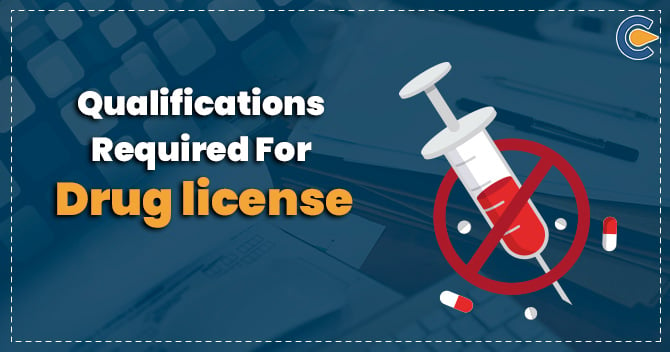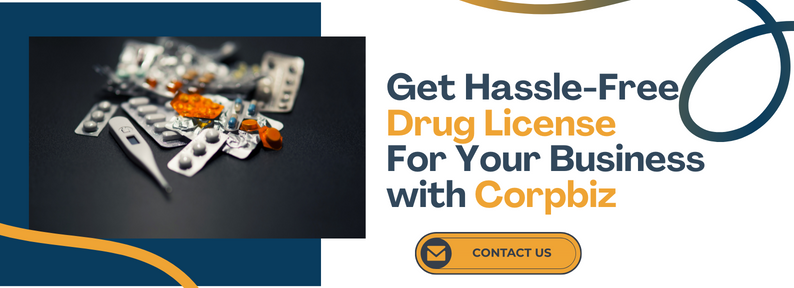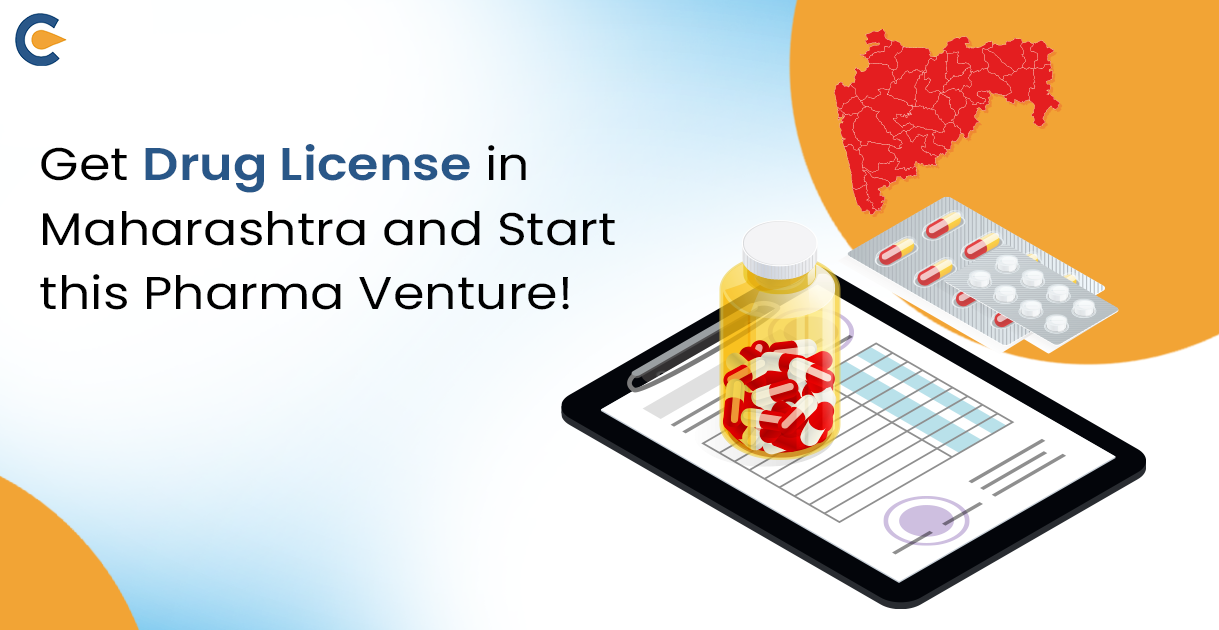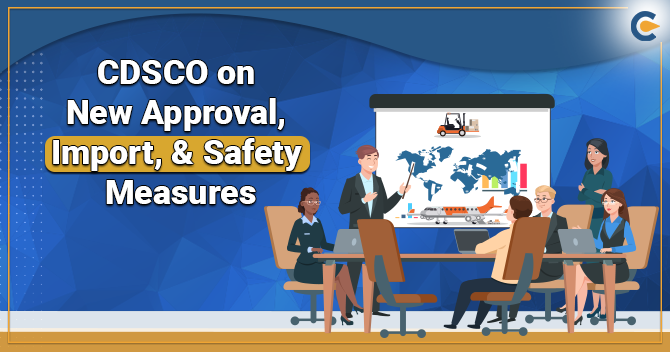In earlier days only old aged people used to get sick, but nowadays even the younger generation is falling ill very frequently. So, to ensure our good health, drugs have become an essential part of our life. And considering the present health condition, every colony and street of our country has a pharmaceutical shop or pharmacist or druggist, but to start such a shop or store, they must have a drug license.
Meaning of Drugs under the Drugs & Cosmetics Act, 1940
As per the Section 3(b) of the Drugs & Cosmetics Act, 1940[1] , a drug includes:
- All medicines and other substances are used for diagnosis, treatment or prevention of any disease or any disorder of humans or animals.
- The substances or preparations are applied to the human body to repel insects.
- The substances, excluding food intended to keep away or for destructions of the insects or vermin, which causes the disease to human body or animals, as notified by Central Government.
- All substances used as components of drugs, including empty gelatine capsules
- The devices are used for external or internal use in diagnosis, treatment, prevention or mitigation of disease or any disorders of humans or animals, as notified by Central Government.
An amendment was made in 1964, which included Ayurvedic, Siddha and Unani Drugs within the definition of drug.
Drugs or medicines cannot be consumed as chocolates because for each disease; there is a specific drug/medicine. Thus, they need to be consumed without proper consultation with an appropriate doctor; otherwise, the drug can have serious side effects.
An Introductionto the Drug License
To start a business of drugs or cosmetics, one needs to obtain permission under the Drugs & Cosmetics Act, 1940, which is known as Drug License. Without a drug license, no one is allowed to conduct a business related to sell of drugs or cosmetics. Not everyone can be granted a license; there are certain qualifications required for drug license.
The procedure and the qualifications required for drug license is given under the Drugs and Cosmetics Act, 1940. This Act is applicable to the whole of India. All the laws relating to drugs and cosmetics and also their sale and manufacture are dealt under this Act and the Rule made thereunder. Running a pharmaceutical business without a drug license will lead to an offence under the Act and the IPC,1860.
Any individual, LLP, partnership firm, OPC or company can apply to have a drug license. The license, once obtained, is valid for up to five years, and the renewal of the license can be done by providing the required documents.
The Ministry of Health and Family Affairs issued the Cosmetic Rules in December 2020, which states that a drug license is mandatory for the import of cosmetics in India.
Types of Drug License
The followings are the type of drug licenses available in the pharmaceutical business:
- Manufacturing Drug License
This type of license is issued to large industries which are manufacturers of allopathic, cosmetic, ayurvedic products mentioned under the Drugs & Cosmetics Act, 1940.
- Loan Drug License
This license is issued to those who are not manufacturers of drugs but uses the manufacturing units of other licenses.
- Import Drug License
The dealer who is importing the products to the manufacturers of drugs or importing drugs in India obtains this license.
- Multi-Drug License
This license is issued to a pharmaceutical business that owns pharmacies in different states with the same name.
- Sale Drug License
This type of license is issued for the sale of drugs. These licenses are given to pharmaceutical or other types of stores. It has the following bifurcations:
- Wholesale Drug License
This license is for those who are involved in the business of wholesale drugs. This is issued by CDSCO.
- Retail Drug License
This license is for retailers who are in the pharmaceutical business. This can be issued by State Pharmacy Council.
The qualifications required for drug license of all the above-mentioned types are same.
Issuing Authority for Drug License
In India, a drug license is granted by the following authorities:
- State Drugs Standards Control Organisation (SDSCO)
According to the Act, the drug’s sale, distribution, and manufacture are regulated and controlled by the State Authority.
- Central Drugs Standards Control Organisation (CDSCO)
As per the Act, this organisation is for the approval of newly made drugs and their clinical trials. It controls the quality of the drugs too.
State Authority with CDSCO is responsible for the grant of drug licenses.
Qualifications required for Drug License
The rules and qualifications required for drug license under the Drugs & Cosmetics Act, 1940 are as follows:
- The person who wants to have a drug license must have practical experience of four years in the distribution of drugs.
- Only a licensee can manufacture a drug under the supervision of a registered pharmacist.
- A retailer of Drugs shall keep a record in a register at the time of supply of Drugs.
- The licensee should not store or sell an expired drug, although only storing expired drugs is not an offence until and unless there is an intention for sale.
- Drugs can be sold to a minor.
- The drugs or medicines for an animal should have a tag stating, “not for human use, for animals only”.
- The drug licensee should maintain a purchase record of drugs sold or intended to sale.
- The Act also prohibits the license holder from storing the free samples of drugs at his own premises, which were intended for distribution to medical professionals.
- The drug prescribed by a registered medical practitioner then, before retail supply, must go through an inspection by a registered pharmacist.
- The drugs which are valid for only two years should be supplied to registered entities such as nursing homes, hospitals, dispensaries and medical practitioners only under a signed written order.
The Drugs & Cosmetics Act 1940 has provided a long list of the qualifications required for drug license; the following are some of them:
- The carpet area of the pharmacist store should be 10 square meters for retail or wholesale outlets and an area of 15 square meters for combined wholesale or retail.
- All drugstores should have an air conditioner, sound ventilation system and a refrigerator.
- As per the Act, a person can only conduct the business of drugs in the presence of the following persons:
- Registered pharmacist under the State Pharmacy Council
- A graduate with a minimum of one year of experience in a reputed pharmacy in drug sales and marketing.
- A person who has passed S.S.L.C. and have an experience of four years in pharma marketing.
- At last, any person approved by the department of drug control.
Documents required for Drug License
Apart from the qualifications required for drug license, the followings are the documents one need to have with him before applying for the drug license:
- Certificate of incorporation of the company
- Identity proof of director, proprietor or partner.
- Address proof
- An affidavit stating that the director, proprietor or partner are not convicted under the Act.
- An affidavit by the registered pharmacist or any other competent person.
- A qualification proof, in case of retail sale registered pharmacist.
- An appointment letter for registration under the local pharmacy council.
- Receipt or proof of the fee deposited.
- As per the rules, the site plan and the key plan of premises as required in the specific state.
- A copy of the board resolution permitting obtaining a license
- In case of a wholesale license, qualification proof, experience certificate and appointment letter of the person.
Procedure to obtain Drug License
The followings are the steps provided for obtaining a drug license:
- Filling of application form: The applicant needs to fill online application form for the drug license of the respective state. One can access the application by paying an online fee.
- Uploading Documents: Upload scanned copies of all the required updated documents. The documents should have proof of qualifications required for drug license.
- Verification and inspection: The next step will be the verification. An inspector will be appointed to inspect the premises of the pharmaceutical shop or store in order to check whether the details provided by the applicant are true or not.
Once the drug inspector verifies the details of the application form and if he is satisfied, then the license is granted, but if he is not, he will raise the query, and the applicant has to reply within three days. Any unsatisfactory reply can proceed towards the cancellation of the license.
- Grant of license: The drug control department issues the drug license.
Conclusion
A drug License is essential for those who are in the pharmaceutical business. The Drugs & Cosmetics Act, 1940 provides the guidelines and qualifications required for drug license. The state authority, along with Central Drugs Standards Control Organisation, grants the drug license. The said license is valid for five years. The sale, manufacture, etc., of drugs or cosmetics without a license will be an offence under the Act and would also attract some grave penalties under the Indian Penal Code, 1860.
Read our Article:Import License of Drugs and Cosmetics in India













